An American Animal is a play about wolf-watching in Yellowstone and a hunter who wants to bag a Yellowstone tagged wolf during the sanctioned wolf hunting season. But it’s also about two teenagers—one a white trans girl and one a queer Black girl—trying to figure out how to survive to adulthood in America. There is a butch Chicano park ranger who's been watching the wolves for twenty years and now finds herself a role model to two queer kids, at a loss of how to make them feel safe, and a Jackalope who can’t stop dying no matter how much he runs. The play considers xenophobia, the liminal spaces of queer existence, and being on the edge of death as a marginalized person in this country. It’s really about American Fear: marginalized people’s reality of being hunted in this country and the fabricated instinct America has fostered that makes white cisgender straight Americans feel hunted.
This American Fear, I think, is critical to consider when we talk about eco-justice in theatre because we cannot think about eco-justice without considering the attempted genocide on queer and trans life in this country. We cannot talk about it without talking about American Fear.
If that sounds like hyperbole, I have to point you in the direction of the almost daily influx of legislation seeking to restrict, push out, and deny the existence, healthcare, and livelihood of trans and queer life. Or I could just speak from my experience working at my day job as a research coordinator on trans youth healthcare research. The science tells us that gender affirming care saves lives, yet my co-workers have been doxxed, my boss has received death threats online, and one of our partner research sites received a bomb threat—all in the past few months. All because of the fervor of a few who deem access to gender-affirming care an attack on them.
We often approach queer and trans storytelling in theatre with a structure that promotes scarcity rather than abundance—and conservation rather than growth.
They are trying to kill us. The political infrastructure of the United States has declared a hunting season on queer and trans existence, a process white cisgender middle and upper-class Americans have culturally co-signed in large part by trying to remain moderate. And the American theatre, which overwhelmingly panders to this same small subset of American life, has aided and abided this process by relegating queer and trans storytelling to token corners of our stages.
As a white non-binary lesbian, my perspective is often still uplifted over my Black and Brown and transfemme colleagues. Yet I have also witnessed, time and again, the perfunctory measures many institutions engage in the name of “diversity and inclusion.” Even in the reading of An American Animal, a cis actor was initially cast in the role of the Willa, the trans girl character in the play, without either that actor’s say-so or mine. This was only corrected after that same cis actor—a young undergraduate student—spoke up to say that she didn’t feel comfortable being in the role, that she thought a trans woman needed to be cast.
We ended up with a lovely transfemme actor in the role, and I thanked, and still thank, that young person for her bravery in speaking up to her superiors. (We do not often teach actors, particularly students, to have agency, but that is a topic for another essay.) But the structure that left her to bear the weight of that decision on her shoulders is at fault, and it will continue to be at fault until we stop trying to preserve a system that was never made with queer and trans lives in mind.
I don’t mention this experience to denigrate the organizers of the reading or my fellow artists, many of whom are trying their very best. I say this only to point out that we often approach queer and trans storytelling in theatre with a structure that promotes scarcity rather than abundance—and conservation rather than growth.
I felt this moment, this room, a carved pocket of the world, a small pasture where children might be able to experience a semblance of joy.
Recently, in my state of Illinois, a great swath of the Bell Bowl Prairie—an ancient prairie that has existed for over eight thousand years—was paved over for the local airport. Many thousands protested the development, but ultimately bureaucracy allowed for moderation, which in this case meant devastation. Since I heard the news of Bell Bowl Prairie being uprooted for the sake of convenient commerce, I’ve been thinking of my play and the children who inspired it. I currently help run my workplace’s transgender and gender nonconforming (TGNC) teen group, a monthly space where trans, gender nonconforming, and non-binary teenagers can get together simply to hang out without the burden of a cisgender gaze. I’ve been thinking of a young trans girl who was new to the group—quiet to join at first, but bright, funny, quick-witted, and eager to share. I’ve been thinking about how, when she heard that I work on trans youth healthcare research, she just nodded and said, “That’s nice. I don’t think I’d be here if I hadn’t been able to be myself,” before she wandered off to go talk to another kid about their favorite classes to play in Dungeons and Dragons.
At that moment, I felt something like stepping into a nature preserve, a place that exists to mitigate damage but not necessarily to let wildlife flourish. I felt this moment, this room, a carved pocket of the world, a small pasture where children might be able to experience a semblance of joy.
Fascism is designed to strike fear into us, marginalized or not. It makes those it seeks to lift up into despotic power feel like they are being attacked, and it makes those who are being attacked seem like the source of the onslaught. Whether or not you believe its rhetoric, whether you are a white cis man or black trans person, fascism makes us peer over our shoulders—constantly on alert for attack, whether real or imagined. And in the end, it is often the imagined fears that keep us up at night, that cause hesitation when trying to upend convention, stand alongside comrades, and strive for the world instead of settling for a small corner preserved until the next administration deems it theirs. Fascism hopes to make people into moderates, because a moderate may not join the cause and carry a torch, but a moderate will wring their hands to the side while the world around them burns; and that’s all that a fascist needs.
Recently, Republicans have introduced a bill to try to delist the gray wolf from the Endangered Species list. There is no science backing up this decision, only hate under the sheepskin of politics, the remnants that weren’t satisfied with a mere hunting season. That's the ultimate danger of trafficking in moderation with fascists: give them an inch, and they’ll load the bullet to shoot you dead.
The doomer discourses about the state of queer and trans life and about climate change often strike the same chords, a bitter sarcasm cloaking dire nihilism. But I still have a great belief and hope in the possibilities of theatre. Perhaps it’s just my complicated Catholic upbringing, but theatre for me is about ritual, catharsis, and community. It’s about making the intangible tangible, if only for a moment, to help us grasp a larger understanding of ourselves and our comrades. And if we can have understanding, I think we can have hope. My politic above all else is a politic of hope.
When we protect queer and trans life, we protect the natural world; and when we protect the natural world, we protect queer and trans life.
Rep. Zooey Zephyr has been denied the ability to speak by her fellow Montana representatives since 20 April. She was barred from speaking when she dared to do her duty as a representative of her constituents by taking her fellow lawmakers to task for the harm the transphobic legislation they were introducing would cause to trans lives. In An American Animal, there is a jackalope named Jack who keeps being killed and who keeps coming back to life. He introduces himself to us by noting that the reason that he's most often shot is because he can talk, because it makes hunters afraid that he can talk back at them. And at the advent of wolf hunting season, Jack, alone but alive, says directly to the sleeping Hunter who’s been chasing him.
Theodore Roosevelt once said that wolves were “beasts of waste and desolation.”
They and I are similar
We have known waste
We have known desolation
Buried ourselves a thousand times, knowing we’ll do it a thousand more
But this, this is where you have led yourself astray—
You think the dirt of death can smother a howl?
No.
“of these, all and one, I weave the song of myself”
Zooey Zephyr is still working. She’s fighting, she’s speaking out, and she’s still living joyfully with queer love. And so can we.
The last line of An American Animal is spoken by Chloe, a young queer Black girl who wants to be a wolf biologist someday, as she looks out over what remains of the Lamar Valley wolves. She speaks into her recorder and says this:
Chloe Evans, Day 93 of my observations of Yellowstone Lamar Valley Wolf Pack 11:42 am.
678 is playing with his children.
They’re still here.
We are not in the end times, and we don’t need to organize our politics or our art as if we are. Queer and trans people don’t need to allow ourselves a small corner of humanity. Cis and straight people don’t need to deny themselves a vision of other possibilities. We are stronger when we demand more. When we protect queer and trans life, we protect the natural world; and when we protect the natural world, we protect queer and trans life. The two are part and parcel of one another, and it is in this interconnection, that abundance, from which we as artists and citizens must build our future from. We can rebuild the structure to let our art and world run freely in the fields, as they were always meant to.

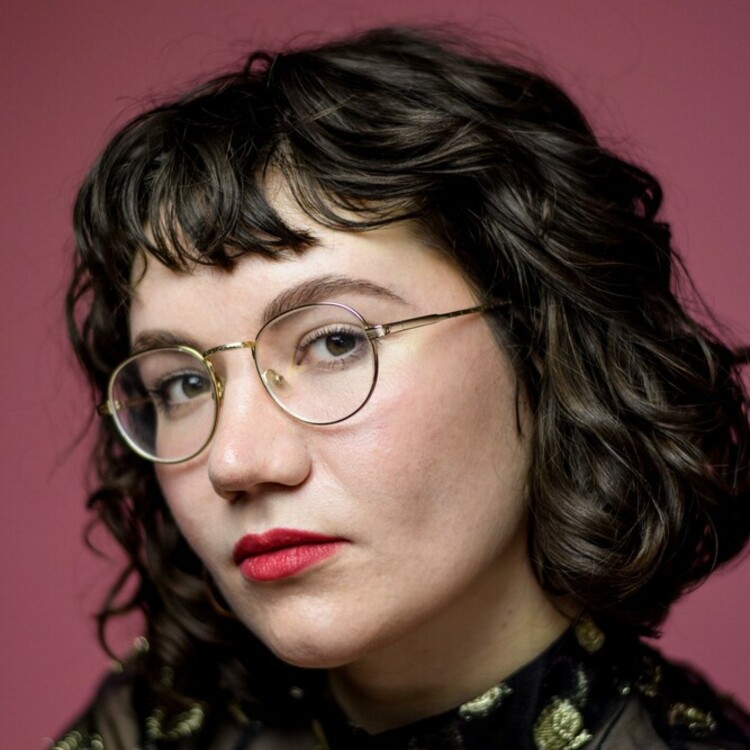

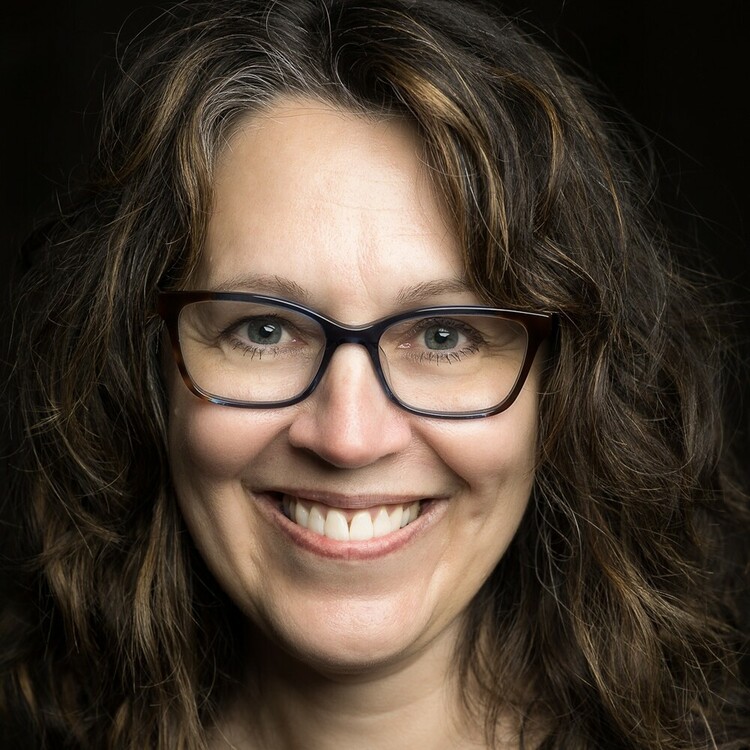
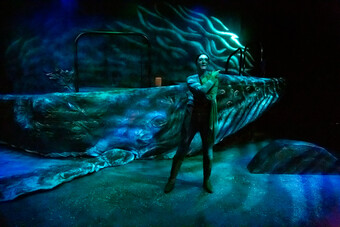

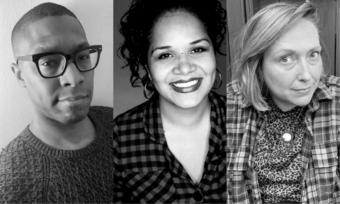




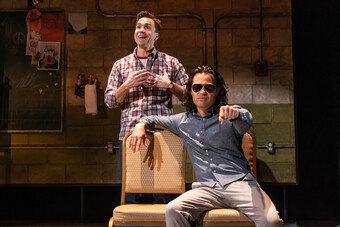


Comments
The article is just the start of the conversation—we want to know what you think about this subject, too! HowlRound is a space for knowledge-sharing, and we welcome spirited, thoughtful, and on-topic dialogue. Find our full comments policy here